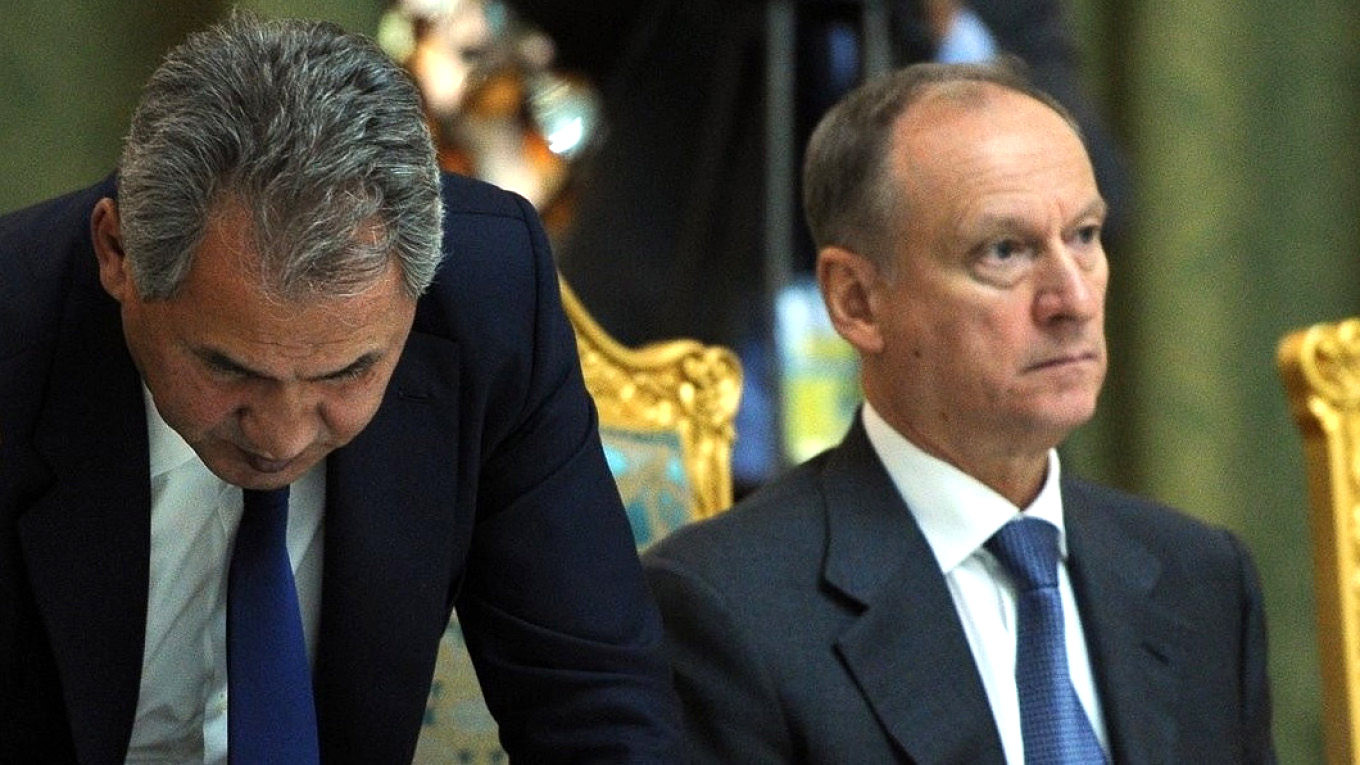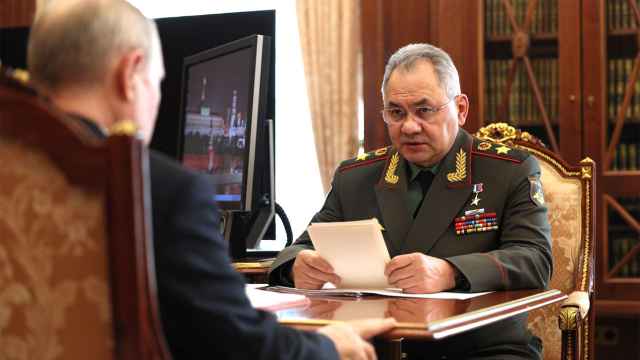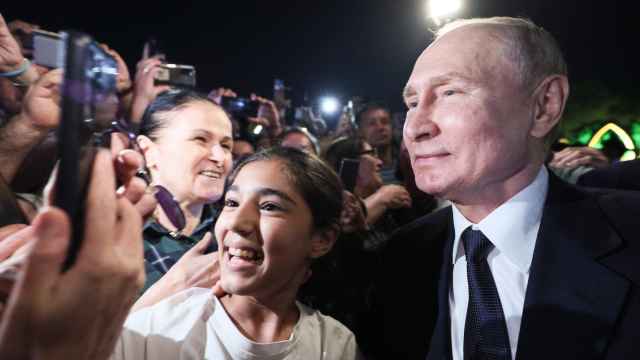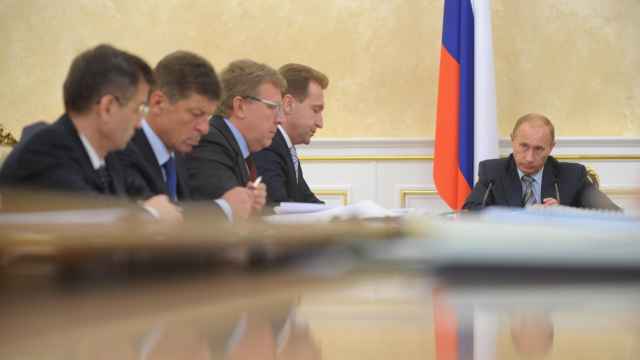The investigative outlet Proekt released a blockbuster report into Russia’s elite, which found that 76% of 1,329 senior officials had “relatives who also work in government administration, in businesses tied to state contracts … as well as other signs of potential conflicts of interest.”
The journalists went a step further by claiming that nepotism has reached record levels since the Romanov era, with President Vladimir Putin having elevated “at least 26 relatives and in-laws” into office or the helm of lucrative state companies. They also characterized Russia’s ruling class as a self-replicating “hereditary aristocracy” with roots that stretch back into Soviet officialdom.
While mapping the networks of Russia’s elite is worthwhile, neither of these conditions is informative about what actually shapes the country’s ruling class.
Nor is it new. Nepotism is the very air that imperial bureaucracies have breathed for millennia. It thrived not only under Brezhnev, but also under Lenin and Stalin. The only difference is that Stalin’s purges meant that privileged families moved from the privileged category to the persecuted one. But the next generations of “patrons” behaved exactly like the previous ones.
That 76% of officials and civil servants have relatives who are connected to the government or business is hardly surprising. Bureaucratic patronage has always been pervasive.
As for the conflict of interest indicators, which the authors discuss with excessive alarm, Russian officials have never been troubled by such things, whether in the Soviet era, the post-Soviet era, or under Putin.
Russia’s bureaucracy operates like a mafia, not a civil service. Under Putin, the system runs on fear: fear of hierarchy, fear of the leader, fear of punishment for mistakes.
Overemphasizing abstract “conflicts of interest” leads the authors to overdramatize. It is doubtful, for instance, that Putin really is the “record-holder” of nepotism.
The dozens of “beneficiary relatives” identified around him are almost all second cousins and nephews in secondary positions. The only one holding a position of any real prominence is Anna Tsivilyova, who is the deputy defense minister.
Putin’s true, enduring interest lies not in stacking offices with his extended family but in discovering the secret of eternal life (a task he has assigned to one of his daughters), while preparing the rise of his sons and grandsons to the top. Measuring nepotism indexes by counting raw numbers tells us little about these processes.
Still, the enormous trove of personal histories compiled by Proekt — of top officials, their kinship ties, in-laws, romances, affairs and adventures — is fascinating reading and reveals the logic behind the behavior of the elite.
Useful, though incomplete, are the estimates of how saturated the upper stratum is with alumni of the KGB and FSB. Proekt estimates their share at 29% of top officials overall. This includes 21% among top civilian officials and 36% in the key ruling stratum they label “the Kremlin.”
To complete the picture, we must add another 20% — top officials who are the close relatives of members of the security services and are likely working in perfect unison with them.
The rise of the security services as the core of the post-Soviet ruling system is a well-documented phenomenon of which Putin is a product, rather than an initiator. The ideological baggage of the FSB — mafia-like solidarity, conspiratorial thinking and pompous great-power ideology — was the part of the intellectual heritage of the imperial ruling class that survived most intact. No wonder it became not only the guiding principle but the religion of the power machine of the Russian Federation.
As for the claim that this machine is a hereditary aristocracy, allegedly descended from Soviet elites, this is highly questionable.
The 58% of top Putin-era officials said to be descended from Soviet nomenklatura are usually the scions of minor officials — factory directors, district-level bureaucrats. Most often, they are descended from mid-level security officers, of whom the U.S.S.R. had hundreds of thousands.
Putin’s army is not led by the descendants of Soviet marshals he loves to tell jokes about. His administration lacks the grandchildren of Brezhnev Politburo members. The only exception is Anton Vaino, grandson of a third-tier Central Committee member who headed the Estonian Communist Party between 1978 and 1988. He stands alone.
The delight with which the authors announce the occasional interesting ancestor, such as a revolutionary Baku commissar among the four great-grandfathers of Dmitry Peskov. But their delight in this discovery reflects more about their biases than the system.
Sure, the captains of the Putin-era economy are often children of Soviet economic bureaucrats (though not major ones). And cultural administrators may come from “cultured” families, such as theater directors.
But the solemn way Proekt describes the “ancient lineage” of someone like Olga Lyubimova, the culture minister, is unintentionally comical: “It is difficult to assess in which generation the minister became a bureaucrat. Under Soviet rule, her relatives belonged to the cultural nomenklatura; in the 19th century, they governed the country.” They go on to cite her links to tsarist governors and even Catherine the Great.
In reality, Lyubimova is the daughter of a mid-level Moscow cultural bureaucrat. She inherited her position from Vladimir Medinsky (the son of an ordinary military officer) not because of blue blood, nor because of her past as a Moscow cultural socialite, but because of her absolute obedience.
The genealogy of most pillars of the regime is extremely ordinary. Neither the heads of parliament — Vyacheslav Volodin and Valentina Matviyenko — nor Prime Minister Mikhail Mishustin, nor Chief of the General Staff Valery Gerasimov, nor any of the heads of the “power ministries” descend from notable Soviet grandees.
Hereditary aristocracy is not the past of the Putin ruling class — but it is its desired future. The nomenklatura of the 21st century wants what the Soviet and post-Soviet elites never achieved: turning high office into inheritable property.
While Putin remains in power, his appointees have managed to build dynasties of two or even three generations.
The most successful example is the Patrushev family: Dmitry, son of Nikolai, is already a deputy prime minister. Some even see him as a potential heir to Putin. The Chemezovs and Kovalchuks have also succeeded in building a dynasty — not to mention the Kadyrovs.
But the fate of these dynasties is tied to their leader. Look at Sergei Shoigu’s clan: the former defense minister shamelessly distributed key posts and state-linked business opportunities to daughters, in-laws, a father-in-law and even a mistress.
But as soon as the ruler tired of him, the dynasty’s flowering ended abruptly. The generals around Shoigu, many of whom had been building dynasties of their own, landed in prison. Other dynasties would be wise to learn from this.
A true aristocracy is not created by individuals’ biological desire to pass down status. It is created by a class consciousness — an elite that sees itself as responsible to society and capable of defending its privileges against the supreme ruler.
Russia does not have an aristocracy. It has only nachalstvo — “the bosses.”
Reading Proekt’s report, this fact is revealed in all its glory. This boss-class will last only as long as the regime’s head remains in place. When Volodin said, “If there is no Putin, there will be no Russia,” he may have meant something quite real: when Putin is gone, the entire class of leaders he assembled will collapse with him.
A Message from The Moscow Times:
Dear readers,
We are facing unprecedented challenges. Russia's Prosecutor General's Office has designated The Moscow Times as an "undesirable" organization, criminalizing our work and putting our staff at risk of prosecution. This follows our earlier unjust labeling as a "foreign agent."
These actions are direct attempts to silence independent journalism in Russia. The authorities claim our work "discredits the decisions of the Russian leadership." We see things differently: we strive to provide accurate, unbiased reporting on Russia.
We, the journalists of The Moscow Times, refuse to be silenced. But to continue our work, we need your help.
Your support, no matter how small, makes a world of difference. If you can, please support us monthly starting from just $2. It's quick to set up, and every contribution makes a significant impact.
By supporting The Moscow Times, you're defending open, independent journalism in the face of repression. Thank you for standing with us.
Remind me later.






